
Find A Professional
More Items From Ergsy search
-

Can Mounjaro be used in type 1 diabetes?
Relevance: 100%
-

Is Type 2 Diabetes hereditary?
Relevance: 92%
-

Is Ozempic suitable for type 1 diabetes?
Relevance: 89%
-

What causes Type 2 Diabetes?
Relevance: 77%
-

Where can I find support for managing Type 2 Diabetes in the UK?
Relevance: 76%
-
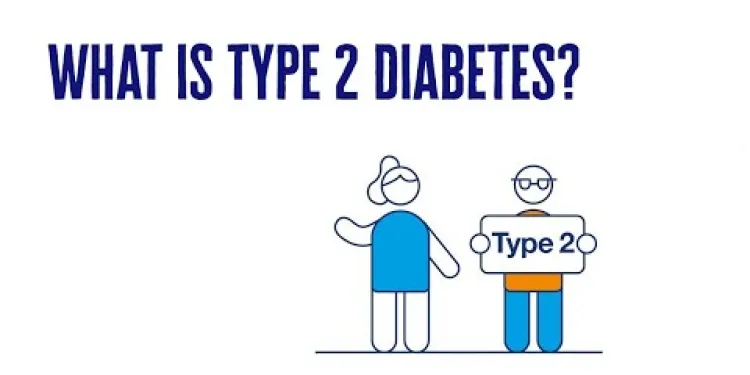
What Is Type 2 Diabetes? | 2 Minute Guide | Diabetes UK
Relevance: 74%
-

Can Type 2 Diabetes go away?
Relevance: 73%
-

Can Type 2 Diabetes be prevented?
Relevance: 71%
-

What is type 1 diabetes?
Relevance: 70%
-

Type 1 Diabetes supporting adults to manage Type 1 diabetes
Relevance: 66%
-

What complications are associated with Type 2 Diabetes?
Relevance: 65%
-

What are the symptoms of Type 2 Diabetes?
Relevance: 65%
-

What is the role of insulin in Type 2 Diabetes?
Relevance: 64%
-
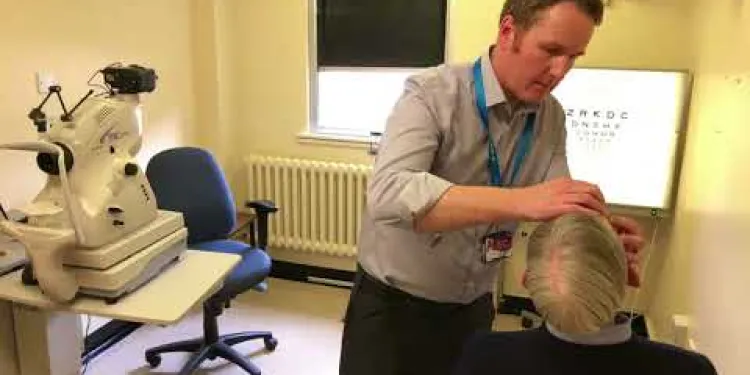
Derbyshire Diabetic Eye Screening - Diabetic Eye Screening
Relevance: 63%
-

How is Type 2 Diabetes diagnosed?
Relevance: 59%
-
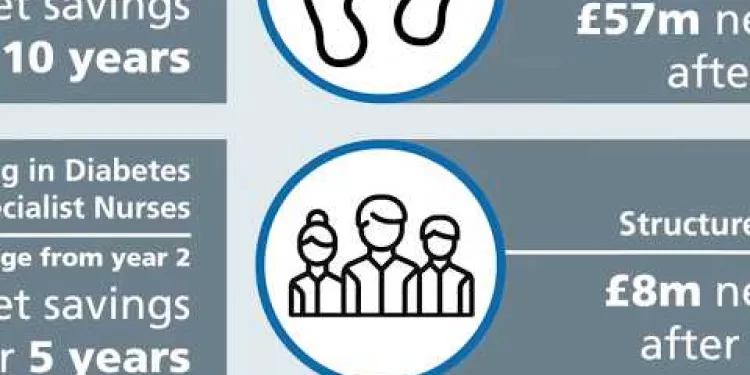
NHS Diabetes Prevention Programme; Preventing Type 2 and improving outcomes for people with diabetes
Relevance: 59%
-
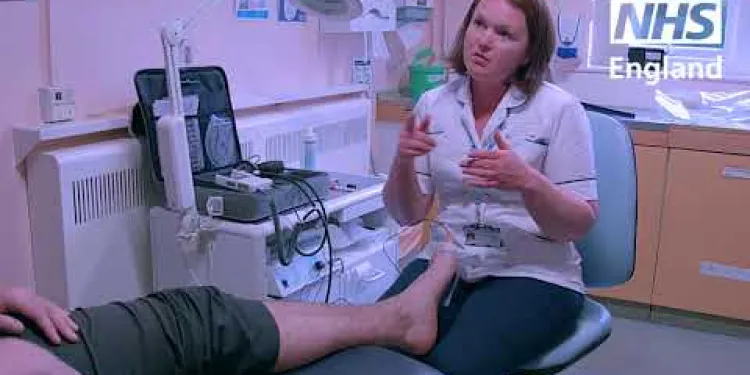
Improving outcomes for people with diabetes
Relevance: 58%
-
What is Barbie Doll Diabetes?
Relevance: 57%
-

How is Type 2 Diabetes treated?
Relevance: 57%
-
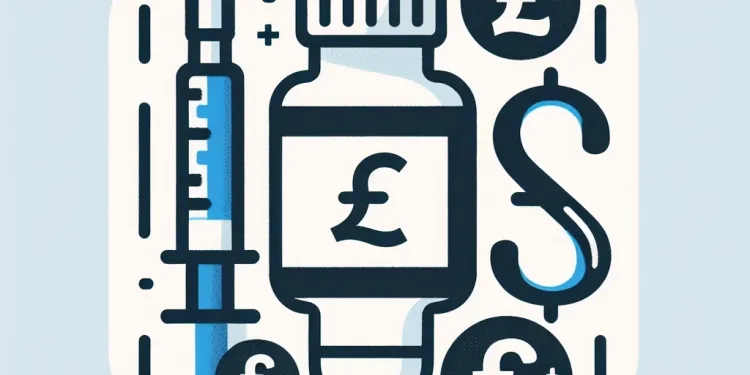
Is Teplizumab used to treat diabetes?
Relevance: 56%
-

Can stress affect my Type 2 Diabetes?
Relevance: 55%
-

How to manage type 2 diabetes
Relevance: 53%
-

Type 2 diabetes - common signs and symptoms UHL NHS Trust
Relevance: 53%
-

Is Wegovy used for type 2 diabetes management?
Relevance: 49%
-
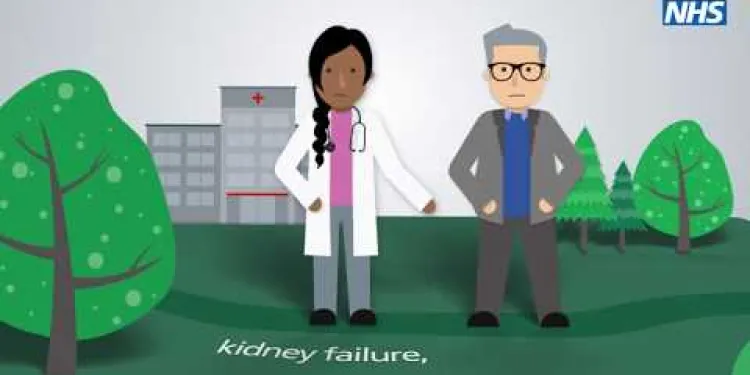
The NHS Diabetes Prevention Programme story
Relevance: 47%
-
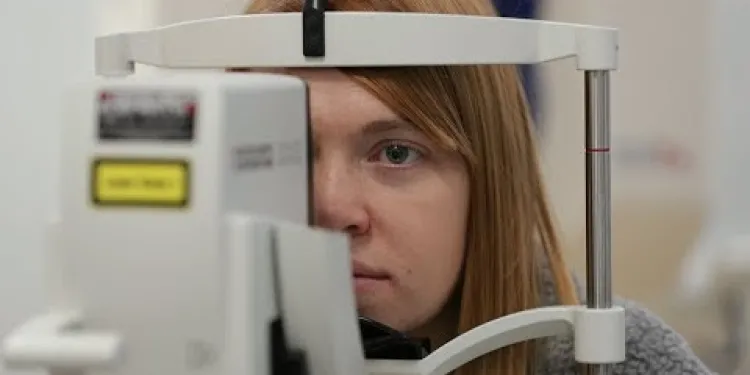
Patient voices in type one diabetes - I would have done things differently.
Relevance: 46%
-
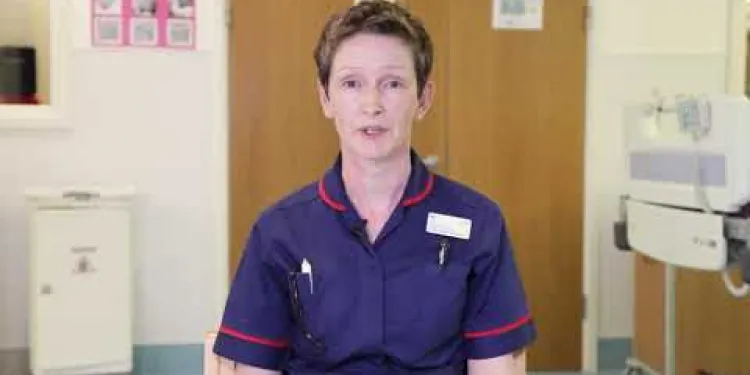
Gestational Diabetes during pregnancy
Relevance: 46%
-

How often should I check my blood glucose levels?
Relevance: 44%
-

Hansa's story - The NHS Diabetes Prevention Programme
Relevance: 44%
-

Tom's story (NHS Diabetes Prevention Programme)
Relevance: 43%
-
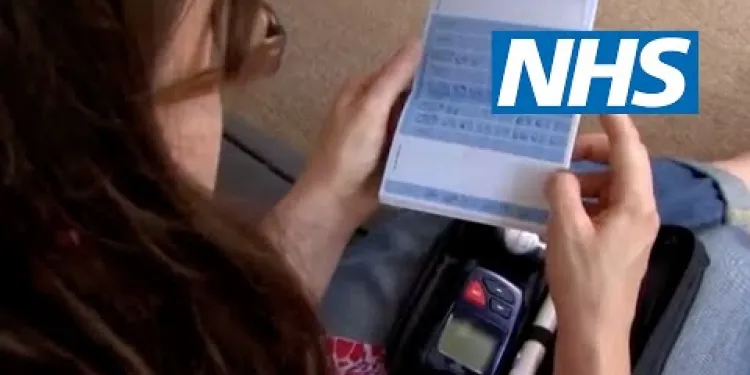
Gestational diabetes | NHS
Relevance: 42%
-

Pam’s story - The NHS Diabetes Prevention Programme
Relevance: 40%
-

What can I eat if I have Type 2 Diabetes?
Relevance: 39%
-

Sarah and Glinys Managing Diabetes into remission Jan2019
Relevance: 38%
-

Tom's story (NHS Diabetes Prevention Programme)
Relevance: 37%
-

Diabetes Eye Screening
Relevance: 36%
-
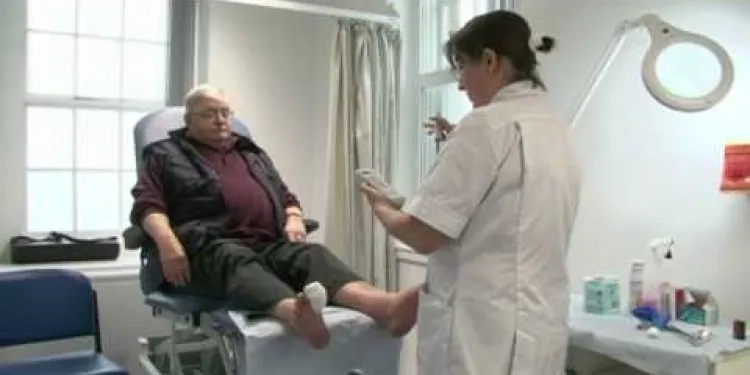
Diabetic Foot Conditions Podiatrist
Relevance: 36%
-
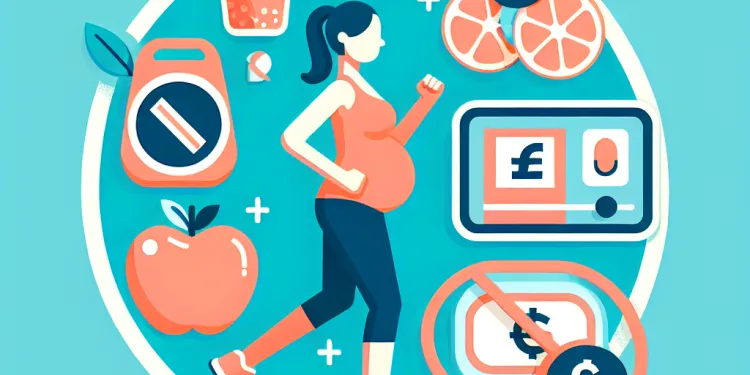
Can exercise help prevent gestational diabetes?
Relevance: 34%
-
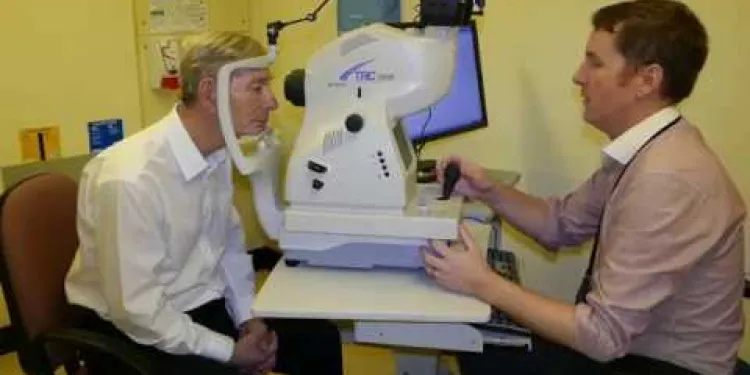
Derbyshire Diabetic Eye Screening - Your Screening Appointment
Relevance: 34%
-

What condition is Mounjaro primarily used to treat?
Relevance: 32%
Understanding Type 2 Diabetes
Type 2 diabetes is a chronic condition characterized by high levels of sugar in the blood. It is the most common type of diabetes and primarily affects adults, although it is increasingly being diagnosed in younger individuals. The condition arises when the body becomes resistant to insulin or when the pancreas is unable to produce sufficient insulin.
Genetic Factors and Heredity
There is a genetic component to type 2 diabetes, meaning that it can run in families. If a parent or sibling has type 2 diabetes, your risk of developing the condition is higher. Research has shown that certain genes are associated with an increased risk of type 2 diabetes, affecting insulin production and glucose metabolism.
However, it is essential to understand that having a family history of type 2 diabetes does not mean you will definitely develop the condition. Genetics are one piece of the puzzle, and lifestyle factors also play a significant role in the development of the disease.
Lifestyle and Environmental Influences
In addition to genetics, lifestyle factors such as diet, physical activity, and weight significantly influence the risk of developing type 2 diabetes. A sedentary lifestyle, poor diet, and being overweight are major risk factors. Eating a balanced diet, maintaining a healthy weight, and engaging in regular physical activity can reduce the risk, even for those with a family history of the condition.
Environmental factors and lifestyle choices can often outweigh genetic predispositions, which means that individuals can actively modulate their risk of developing type 2 diabetes through healthy living.
Prevention and Management
For those with a family history of type 2 diabetes, awareness is crucial in taking preventive measures. Regular monitoring of blood sugar levels, especially if you have other risk factors, can help in early diagnosis and management. Lifestyle modifications, such as a diet rich in fruits, vegetables, and whole grains, along with regular exercise, can prove effective in preventing or delaying the onset of type 2 diabetes.
In the case of already diagnosed individuals, these lifestyle changes can also aid in managing the condition and preventing complications. Medications and regular follow-up with healthcare professionals are often part of an effective management strategy.
The Role of Healthcare in the UK
The National Health Service (NHS) in the UK provides resources and support for individuals at risk of or living with type 2 diabetes. The NHS encourages regular health check-ups and provides programs to educate and assist patients in managing their condition through lifestyle changes and medication adherence.
The Diabetes UK charity also plays a pivotal role in offering information, support groups, and educational campaigns aimed at reducing the incidence of diabetes and improving the quality of life for those affected.
What is Type 2 Diabetes?
Type 2 diabetes is when there is too much sugar in your blood. It is the most common type of diabetes. It usually affects adults, but more young people are getting it too. This happens when the body doesn't use insulin well or doesn't make enough insulin.
Family and Genes
Type 2 diabetes can run in families. If your mom, dad, brother, or sister has it, you might have a higher chance of getting it too. Some genes can make it more likely for you to get type 2 diabetes. These genes affect how your body makes and uses insulin and sugar.
But just because diabetes runs in your family doesn't mean you will definitely get it. Your lifestyle is important too.
How Lifestyle Affects Diabetes
What you eat, how much you move, and your weight can affect your chance of getting type 2 diabetes. Not moving enough, eating unhealthy food, and being overweight can increase your risk. Eating healthy foods, staying active, and keeping a healthy weight can help lower your risk, even if your family has a history of diabetes.
You can change your risk with healthy choices, even if genes play a part.
Prevention and Taking Care of Yourself
If type 2 diabetes runs in your family, it's good to know what you can do to prevent it. Check your blood sugar often if you have other risk factors. Eating fruits, vegetables, and whole grains and exercising can help prevent or delay diabetes.
If you have type 2 diabetes, these healthy habits can help manage it. Medicines and regular doctor visits are also important for managing your health.
Help from the NHS in the UK
The NHS helps people at risk for or with type 2 diabetes. They offer check-ups and programs to teach patients about healthy living and taking their medicine.
Diabetes UK is a charity that gives information and runs support groups and campaigns to help people with diabetes live better lives.
Frequently Asked Questions
Is Type 2 Diabetes hereditary?
Type 2 Diabetes has a genetic component, meaning it can run in families, but lifestyle and environmental factors also play a significant role.
Can Type 2 Diabetes be passed from parent to child?
While Type 2 Diabetes itself is not directly passed from parent to child, the genetic predisposition for it can be inherited.
What role do genes play in Type 2 Diabetes?
Certain genetic mutations can increase the risk of developing Type 2 Diabetes, but they do not directly cause the disease.
Are there specific genes associated with Type 2 Diabetes?
Yes, researchers have identified several genes that are associated with an increased risk of Type 2 Diabetes.
How does family history influence Type 2 Diabetes risk?
Having a family member with Type 2 Diabetes increases your risk due to shared genetic and lifestyle factors.
Can lifestyle changes reduce the hereditary risk of Type 2 Diabetes?
Yes, maintaining a healthy diet, regular exercise, and a normal body weight can help reduce the risk even if you have a family history of the disease.
Is it possible to have Type 2 Diabetes with no family history?
Yes, environmental factors like diet, activity level, and body weight can lead to Type 2 Diabetes even without a family history.
What environmental factors contribute to Type 2 Diabetes?
Diet, physical inactivity, obesity, and stress are major environmental factors that contribute to Type 2 Diabetes.
Can Type 2 Diabetes skip generations?
While genes can be passed through generations, the manifestation of Type 2 Diabetes depends on a combination of genetic and lifestyle factors.
Is Type 1 Diabetes also hereditary like Type 2?
Both Type 1 and Type 2 Diabetes have genetic components, but Type 1 is more strongly linked to immune system factors.
What is the likelihood of developing Type 2 Diabetes if a sibling has it?
The risk increases if a sibling has Type 2 Diabetes, due to shared genetics and potentially similar lifestyle factors.
Can a genetic test predict Type 2 Diabetes?
Genetic tests can indicate a predisposition, but they cannot predict with certainty. Lifestyle factors still play a crucial role.
How can I know if I am genetically predisposed to Type 2 Diabetes?
Family medical history and genetic testing can give insights into your predisposition to Type 2 Diabetes.
Can children develop Type 2 Diabetes if their parents have it?
Children can develop Type 2 Diabetes due to genetic predisposition and shared lifestyle factors, but it is not inevitable.
Does having a healthy lifestyle eliminate the hereditary risk of Type 2 Diabetes?
While a healthy lifestyle significantly reduces risk, it may not completely eliminate the hereditary risk of Type 2 Diabetes.
Are there preventative measures for those with a family history of Type 2 Diabetes?
Yes, regular exercise, a balanced diet, maintaining a healthy weight, and regular screenings can help prevent Type 2 Diabetes.
What percentage of Type 2 Diabetes cases are hereditary?
It's difficult to attribute a specific percentage, as both genetic and lifestyle factors play interdependent roles in the development of Type 2 Diabetes.
How significant is hereditary risk compared to lifestyle factors for Type 2 Diabetes?
Both are significant, but lifestyle factors can often modify the risk associated with hereditary factors.
If my grandparent had Type 2 Diabetes, am I likely to get it?
A grandparent having Type 2 Diabetes may slightly increase your risk, but lifestyle factors are crucial in disease development.
What steps should I take if I have a family history of Type 2 Diabetes?
Adopt a healthy lifestyle, which includes a balanced diet, regular exercise, maintaining a healthy weight, and regular health screenings.
Can Type 2 Diabetes run in families?
Some people in a family may all have Type 2 Diabetes. This can happen because of genes. Genes are like instructions that parents pass down to their children.
If someone in your family has Type 2 Diabetes, you might get it too. But you can still stay healthy by eating good food and moving your body.
Ask a doctor to help you learn more. They can give you advice to stay healthy. Using pictures and apps can also help you understand better.
Type 2 Diabetes can run in families. This means if your family has it, you might get it too. But it also depends on how you live and the environment around you.
Can parents give Type 2 Diabetes to their children?
Type 2 Diabetes itself is not given from parent to child. But, children can get the risk of having it from their parents.
How do genes affect Type 2 Diabetes?
Genes are like instructions in our bodies. They decide things like eye color and hair color.
Genes can also make it more likely for someone to get Type 2 Diabetes. This means if a person's parents or grandparents have it, they might get it too.
Here are some things that can help:
- Eat healthy foods like fruits and veggies.
- Exercise regularly, like walking or playing sports.
- Go to the doctor for check-ups.
Some changes in your genes can make it more likely that you will get Type 2 Diabetes, but these changes do not mean you will definitely get it.
Do some genes make you more likely to get Type 2 Diabetes?
Yes, scientists have found some genes that can make it more likely for a person to get Type 2 Diabetes.
How does family history affect the chance of getting Type 2 Diabetes?
Some families have a higher chance of getting Type 2 Diabetes. If your parents or grandparents have it, you might have a higher chance too.
To help understand your risk:
- Talk to your doctor. They can give advice and check your health.
- Eat healthy foods like fruits and vegetables.
- Exercise regularly. Try fun activities like walking or playing sports.
- Ask family members about their health. It helps to know if diabetes runs in the family.
If someone in your family has Type 2 Diabetes, you might have a higher chance of getting it too. This happens because families often have similar genes and ways of living.
Can changing how you live help lower the chance of getting Type 2 Diabetes from your family?
Some people can get Type 2 Diabetes because it runs in their family. But changing how you live might help. Here are some ways:
- Eat healthy food like fruits and vegetables.
- Exercise or play outside every day.
- Watch your weight and keep it healthy.
- Get enough sleep and rest.
These changes can help you stay healthy. You can also talk to a doctor or nurse for more help.
Yes, eating good food, exercising often, and staying the right weight can help you stay healthy, even if someone in your family had the same illness.
Can you get Type 2 Diabetes even if no one in your family has it?
Yes, things like what you eat, how active you are, and how much you weigh can cause Type 2 Diabetes even if no one else in your family has it.
What things in the environment can cause Type 2 Diabetes?
Type 2 Diabetes can be caused by different things around us. Here are some easy ways to understand:
- Eating Unhealthy Foods: Eating a lot of sugary and fatty foods can make us sick.
- Not Moving Enough: Sitting too much and not playing or exercising can be bad for our bodies.
- Being Overweight: Carrying extra body weight can make it hard for our bodies to stay healthy.
- Stress: Feeling stressed or worried a lot can also affect our health.
- Family History: If people in your family have diabetes, you might have a higher chance of getting it too.
- Pollution: Bad air and water can sometimes make us unwell.
To help keep your body healthy, try to eat good foods, play or exercise every day, and talk to someone if you're worried or stressed.
Supportive tools like pictures or apps can make learning about this easier and fun!
Type 2 Diabetes can happen because of a few main things:
- Eating unhealthy foods.
- Not moving around enough or exercising.
- Being very overweight.
- Feeling a lot of stress.
To help manage these things, you can try:
- Eating more fruits and vegetables.
- Finding fun ways to move, like playing sports or dancing.
- Taking deep breaths or relaxing to feel less stressed.
Can Type 2 Diabetes pass over some family members?
Type 2 Diabetes is a sickness that some people can get. It can run in families. But it doesn’t always affect every family member. Sometimes, it can skip a person in the family and show up in the next generation.
If you want to understand more, ask a doctor or a nurse. They are good people to talk to. You can also look at pictures or watch videos to help you learn.
Diabetes is when your body has trouble using sugar for energy. There are different types of diabetes.
Some people have a kind called Type 2 Diabetes. This can run in families, which means if your parents have it, you might get it too. But it's not just about genes. It's also about how we live, like what we eat and how much we exercise.
Can you inherit Type 1 Diabetes like you can with Type 2?
Both Type 1 and Type 2 Diabetes can be passed down from family.
But Type 1 Diabetes is more about how the body’s defense system works.
How likely are you to get Type 2 Diabetes if your brother or sister has it?
The chance of getting Type 2 Diabetes is higher if your brother or sister has it. This is because you might have similar genes and live the same way.
Can a DNA test tell if I will get Type 2 Diabetes?
A DNA test looks at your genes. Genes are like a set of instructions inside your body.
Some DNA tests can help doctors see if you could get Type 2 Diabetes. But these tests are not always 100% right.
Eating healthy food and playing lots of sports can help you stay healthy. These are good tools to stay strong and keep diseases away.
Genetic tests can give clues about your health, but they can't say for sure what will happen. How you live, like eating and exercising, is still very important.
How do I know if I might get Type 2 Diabetes because of my genes?
Your family's health history and special health tests can help you know if you might get Type 2 Diabetes.
Can kids get Type 2 Diabetes if their parents have it?
Kids can sometimes get Type 2 Diabetes because of their family genes or the way they live, but it doesn't have to happen.
Can living healthy stop you from getting Type 2 Diabetes if it runs in your family?
Living healthy can help you stay strong. It means eating good food, staying active, and not smoking.
If your parents or grandparents have Type 2 Diabetes, you have a higher chance of getting it too. This is called hereditary risk.
Even if Type 2 Diabetes runs in your family, eating well and exercising can help lower the chance of getting it.
To help you, try using tools like meal planners or exercise apps. These can remind you to eat healthy and move more.
Remember, it's always a good idea to talk to a doctor about keeping healthy and managing risks.
Living healthy can help lower the chance of getting Type 2 Diabetes. But it might not fully take away the risk if it runs in your family.
Can you stop Type 2 Diabetes if it runs in your family?
Yes, you can stop Type 2 Diabetes by doing these things:
1. Exercise often.
2. Eat healthy foods.
3. Keep a healthy weight.
4. Go for check-ups with your doctor.
How many people get Type 2 Diabetes from their family?
It's hard to say exactly how much is caused by genes and how much by the way we live. Both work together to affect the chances of getting Type 2 Diabetes.
Is Type 2 Diabetes more about family genes or the way you live?
Let's talk about what matters more for getting Type 2 Diabetes. Is it because of your family's genes or how you live your life?
Type 2 Diabetes can be caused by:
- Family Genes: This means if your parents or grandparents have diabetes, you might get it too.
- Lifestyle Choices: This is how you eat, exercise, and take care of your body.
Here are ways to stay healthy:
- Eat healthy food like fruits and vegetables.
- Exercise regularly, like playing outside or going for a walk.
- Ask for help from a doctor or nurse if you are worried about diabetes.
Remember, both family genes and lifestyle are important, but you can make healthy choices to help your body.
Both are important, but how we live can change the risk from inherited traits.
If my grandparent had Type 2 Diabetes, will I get it too?
Diabetes is when your body has trouble using sugar for energy. If your grandparent had it, it doesn't mean you will for sure. But, you might have a higher chance.
- Eat healthy food like fruits and vegetables.
- Try to move your body every day.
- See a doctor for check-ups.
- Ask your family about their health.
Tools like healthy recipes and exercise apps can help you stay healthy. If you have questions, ask a doctor or nurse.
If your grandparent has Type 2 Diabetes, it might make it a little more likely that you could get it too. But how you live your life, like how you eat and move, is really important for whether you get the disease or not.
What can I do if my family has Type 2 Diabetes?
1. Talk to your doctor. They can help and give advice.
2. Eat healthy food like fruits and vegetables.
3. Exercise often, like walking or playing sports.
4. Check your weight. Try to stay healthy.
Here are some things that might help:
- Set reminders on your phone to stay active.
- Use a calendar to plan your meals.
- Ask a friend or family member to join you in staying healthy.
Live in a healthy way! Eat different kinds of food that are good for you. Move your body by playing or doing sports. Stay fit and go to the doctor regularly to check if you are well.
Useful Links
- Ergsy carfully checks the information in the videos we provide here.
- Videos shown by Youtube after a video has completed, have NOT been reviewed by ERGSY.
- To view, click the arrow in centre of video.
- Most of the videos you find here will have subtitles and/or closed captions available.
- You may need to turn these on, and choose your preferred language.
- Go to the video you'd like to watch.
- If closed captions (CC) are available, settings will be visible on the bottom right of the video player.
- To turn on Captions, click settings .
- To turn off Captions, click settings again.
More Items From Ergsy search
-

Can Mounjaro be used in type 1 diabetes?
Relevance: 100%
-

Is Type 2 Diabetes hereditary?
Relevance: 92%
-

Is Ozempic suitable for type 1 diabetes?
Relevance: 89%
-

What causes Type 2 Diabetes?
Relevance: 77%
-

Where can I find support for managing Type 2 Diabetes in the UK?
Relevance: 76%
-

What Is Type 2 Diabetes? | 2 Minute Guide | Diabetes UK
Relevance: 74%
-

Can Type 2 Diabetes go away?
Relevance: 73%
-

Can Type 2 Diabetes be prevented?
Relevance: 71%
-

What is type 1 diabetes?
Relevance: 70%
-

Type 1 Diabetes supporting adults to manage Type 1 diabetes
Relevance: 66%
-

What complications are associated with Type 2 Diabetes?
Relevance: 65%
-

What are the symptoms of Type 2 Diabetes?
Relevance: 65%
-

What is the role of insulin in Type 2 Diabetes?
Relevance: 64%
-

Derbyshire Diabetic Eye Screening - Diabetic Eye Screening
Relevance: 63%
-

How is Type 2 Diabetes diagnosed?
Relevance: 59%
-

NHS Diabetes Prevention Programme; Preventing Type 2 and improving outcomes for people with diabetes
Relevance: 59%
-

Improving outcomes for people with diabetes
Relevance: 58%
-
What is Barbie Doll Diabetes?
Relevance: 57%
-

How is Type 2 Diabetes treated?
Relevance: 57%
-

Is Teplizumab used to treat diabetes?
Relevance: 56%
-

Can stress affect my Type 2 Diabetes?
Relevance: 55%
-

How to manage type 2 diabetes
Relevance: 53%
-

Type 2 diabetes - common signs and symptoms UHL NHS Trust
Relevance: 53%
-

Is Wegovy used for type 2 diabetes management?
Relevance: 49%
-

The NHS Diabetes Prevention Programme story
Relevance: 47%
-

Patient voices in type one diabetes - I would have done things differently.
Relevance: 46%
-

Gestational Diabetes during pregnancy
Relevance: 46%
-

How often should I check my blood glucose levels?
Relevance: 44%
-

Hansa's story - The NHS Diabetes Prevention Programme
Relevance: 44%
-

Tom's story (NHS Diabetes Prevention Programme)
Relevance: 43%
-

Gestational diabetes | NHS
Relevance: 42%
-

Pam’s story - The NHS Diabetes Prevention Programme
Relevance: 40%
-

What can I eat if I have Type 2 Diabetes?
Relevance: 39%
-

Sarah and Glinys Managing Diabetes into remission Jan2019
Relevance: 38%
-

Tom's story (NHS Diabetes Prevention Programme)
Relevance: 37%
-

Diabetes Eye Screening
Relevance: 36%
-

Diabetic Foot Conditions Podiatrist
Relevance: 36%
-

Can exercise help prevent gestational diabetes?
Relevance: 34%
-

Derbyshire Diabetic Eye Screening - Your Screening Appointment
Relevance: 34%
-

What condition is Mounjaro primarily used to treat?
Relevance: 32%